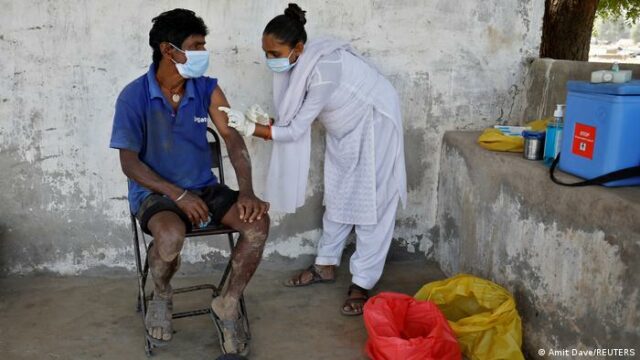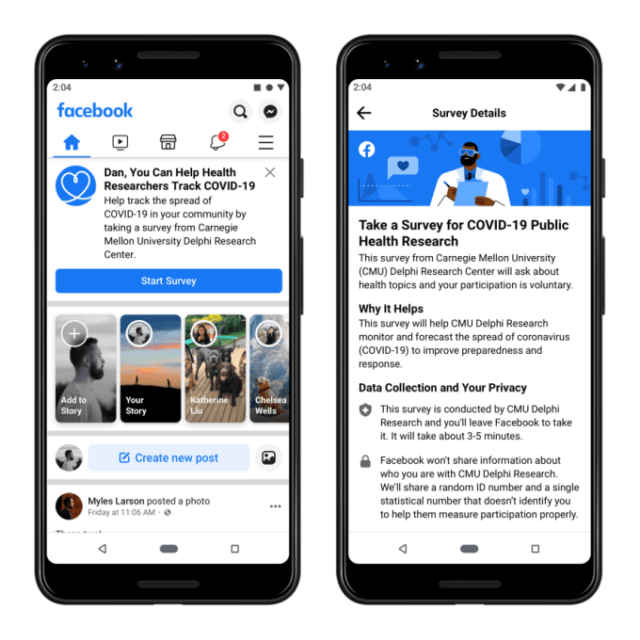Since the pandemic started in March 2020 in India, all we have asked for was a COVID-19 vaccine. It took several months for scientists, doctors and experts to come up with a vaccine that was effective and safe.
However, now since the vaccine is being administered, many have turned away from getting vaccinated. It is a major crisis since India is the second most worst hit nation due to COVID-19 after the USA.
The Centre had stated that it is targeting to vaccinate the entire country by the end of this year. With that said, there is a big question- Is it even possible?
India might have ramped up the vaccination process and jabbed 40k people in one day, but there are still a huge number of people living in India who believe in the misinformation and fake news and thus, avoid getting vaccinated. This hesitancy against vaccination is slowing down the inoculation process.
Informing The Rural India
According to 2017 data from Statista, 450 million people reside in the rural parts of India, which is a huge number. Rural India, which is mostly based on the agriculture sector, is an important part of the country, and their growth is equally important as the growth of urban India.

It shouldn’t come as a shock to us that they are alienated towards the inoculation process of our country as they feel it could be dangerous for them. Rather than objectifying rural Indians and only favouring the elite urban Indians, the government should inform them about the importance of getting vaccinated.
Attention should be given to them, and myths should be busted. Only then, we’ll be able to get rid of vaccine hesitancy and reach the goals our nation is aiming for.
Other Factors Causing Delay In Inoculation
The slow pace of vaccination is also due to vaccine shortage, improper health infrastructure and inequitable access to vaccines. The World Health Organisation had recognised vaccine hesitancy as one of the major threats to global health before the emergence of Covid 19 in March 2020.
As per WHO, vaccine hesitancy can be defined as “delay in acceptance or refusal of vaccination despite the availability of vaccination services”. Fake news and misinformation which comes with every new development, in this case, the COVID-19 vaccine, becomes a hurdle in achieving 100% global health and promotes vaccine hesitancy.

Also Read: From Polio To COVID Vaccine: How India Went From Getting Aid To Giving Aid
To understand what percentage of Indians are hesitant in getting vaccinated and the reasons behind the same, Facebook conducted Covid Symptom Survey (CSS).
The question asked was: “If a vaccine to prevent COVID-19 were offered to you today, would you choose to get vaccinated?”, to which the options were: (a) yes, definitely (b) yes, probably (c) no, probably not (d) no, definitely not.
The results reported by Indian Express are as follows:
“The proportion of the population hesitant to Covid vaccines is highest in Tamil Nadu (40 per cent),
Punjab (33 per cent),
Haryana (30 percent),
Gujarat (29 per cent), and
Andhra Pradesh (29 per cent).
The proportion of the population hesitant to COVID vaccines is lowest in Uttarakhand (14 per cent),
Assam (15 percent),
Jharkhand (19 per cent),
Kerala (19 per cent),
Odisha (19 per cent).”
The study also revealed the various reasons why people are hesitant from taking vaccines. The first one for which 42% voted was that they were waiting for others to take it first.
Followed by reasons such as other people need it more (35%), fear of side-effects (34%), vaccines don’t work (21%), and they don’t believe in the vaccine (11%).
How To Attain Our Goals
As per the data shared by BBC news, only 13% of people (around 1 billion) out of the eligible lot have been fully vaccinated. Hence, along with saying that vaccines are 100% safe and do the work, firms and governments must also put up ethical evidence of the data to prove the same, for Indians are not a bunch of fools and need proper data to accept the facts.
According to the data by Statista, in 2020, more than 50% of people accessed social media. Hence, using social media to bust myths, lies and misinformation can be a good strategy. Campaigns could be organised to achieve the same.
Organisations dealing with COVID-based information can popularise their scientific data, and make podcasts and videos that will help to deal with misinformation regarding COVID-19 vaccines. Also, it is advisable to impart knowledge about vaccines in local languages in order to spread the message widely.
Hence, adopting such methods will surely help India to achieve complete vaccines and promote literacy about vaccines. Any further misinformation that would come up can be dealt with similarly.
Image Source: Google
Sources: BBC News, Scroll.in, Science The Wire, Forbes India, Indian Express
Connect with the blogger: Palak Dogra
This post is tagged under: india covid 19 vaccine, covid 19 india, covid vaccine india, vaccine covid 19 registration, registration, covid registration, vaccine for covid, vaccine for covid 19, covid vaccine registration, vaccine registration, covid 19 registration, vaccine of covid 19, vaccine in india, covid vaccine in india, covid 19 vaccine in india, vaccine update, covid vaccine update, covid 19 vaccine update, covid-19 vaccine, covid 19 update, covid-19, covid 19 news, vaccine news, covid 19 vaccine news
Also Recommended:
‘Don’t Go Near Those Who Have Had The COVID Vaccine, They Have Become Homosexuals’: Iranian Cleric
































